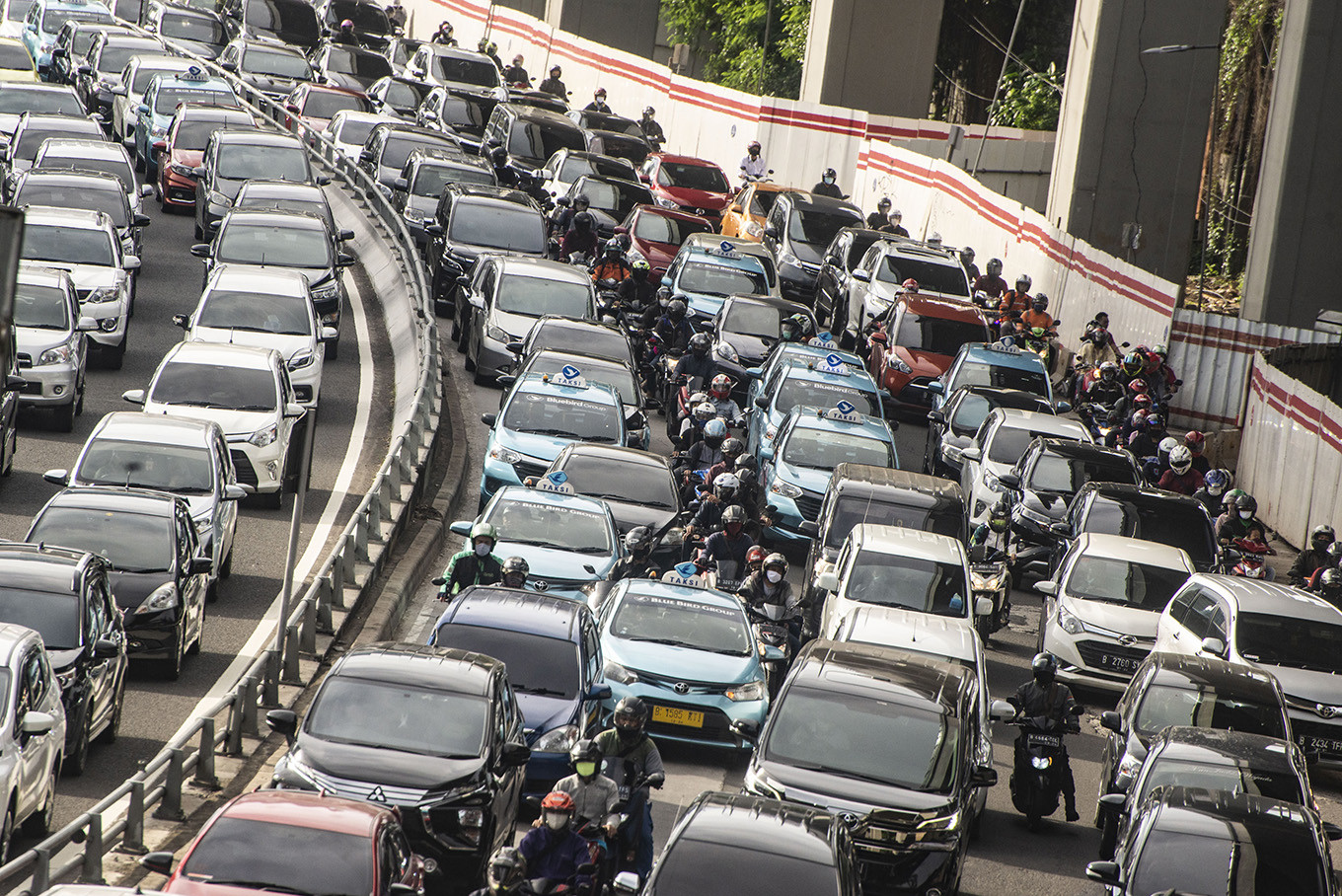Popular Reads
Top Results
Can't find what you're looking for?
View all search resultsPopular Reads
Top Results
Can't find what you're looking for?
View all search resultsMaking motorists pay
The Jakarta administration should stick to its plan to charge motorists as much as possible for parking for the sake of public health.
Change text size
Gift Premium Articles
to Anyone
A
s the second wave of COVID-19 outbreak hits us hard, the wailing of ambulance sirens has become just as ubiquitous as the infamous gridlock that keeps them from shepherding patients to the hospital in a timely manner. There is so much dread in the air and little reason to be thankful.
But if there is anything at all we should be grateful about in the current state of the pandemic, then it should be the opportunity we are given to recalibrate our mobility needs.
Stay-at-home orders have limited our legroom but also started to change our perspectives on the office commute. Thanks to our burgeoning digital economy, we barely need to travel beyond our neighborhoods or even the front door, with nearly anything attainable at the click of a computer mouse.
Bicycles are back in style due to a newfound appreciation for our physical wellbeing. Last year’s wide-scale social restrictions (PSBB) proved to be good for air quality – until we went back on the road and reversed the gains.
So if the Jakarta administration were to come up with a plan to hike parking fees to Rp 60,000 (US$4) per hour in the city center to encourage people to use more affordable public transportation, then we cannot complain. If you charge them, they will stay away. And the knock-on effects are varied; low-paid parking attendants could get a decent wage and the city’s tax revenue would rise.
Conversely, if people from the central government – who plan to move away from Jakarta anyway– try to meddle in the city’s urban transportation master plan and suggest dismantling our bicycle lanes to alleviate alleged inconvenience, then we would be well placed to push back and insist on more mileage instead.
It is high time that Jakarta started thinking about becoming a 15-minute city full of autonomous neighborhoods and complete communities and follow in the footsteps of Paris, Melbourne and Chengdu, where proximity is key to shaving valuable hours off time spent on the road and supporting uberlocal businesses that can help limit people’s carbon footprint.
If places like Lagos can convert shuttered schools into markets to prevent panic buying, or Bogota can add 84 kilometers of bike lanes to encourage social distancing during the pandemic, then maybe it is not such a bad idea that we support new initiatives to help modify our bad habits and help spread economic benefits to the people immediately around us.
So the Jakarta administration should stick to its plan to charge motorists as much as possible for parking, on the grounds of of public health. They could even cast the net wider to include steeper levies on vehicle registration renewals or fuel consumption, or change the way state funds are allocated in support of participatory budgeting.
If there is one thing to learn from the pandemic, then it is that our immediate environment plays an important role in our wellbeing.
Many can attest to the feeling that being cooped up in one’s own quarters for too long tends to instill, but if we allow ourselves to expand this bubble wide enough to include essential services and quality-of-life facilities in our neighborhood, then we would find that there are a lot of ways we can ride out this terrible storm.










